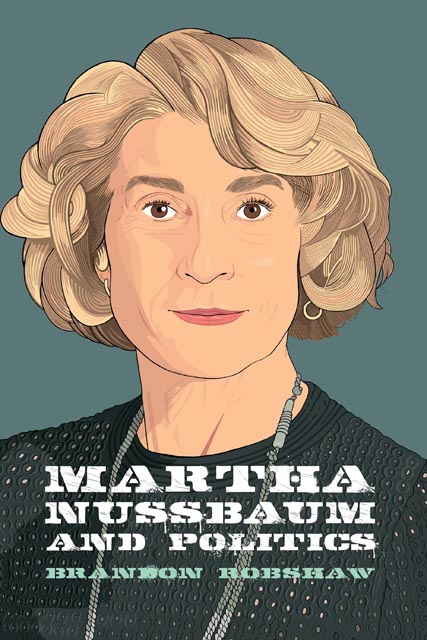Book contents
- Frontmatter
- Contents
- Introduction: A Public Intellectual
- Chapter 1 Nussbaum and the Ancient Greeks: Tragedy, the Luck-Proofing of Life, and Practical Rationality
- Chapter 2 Nussbaum and Education: Socratic Scrutiny, World Citizenship and the Narrative Imagination
- Chapter 3 Nussbaum and Feminism: Liberal Feminism, Adaptive Preferences and FGM
- Chapter 4 Nussbaum and Capabilities: Human Nature, Human Flourishing and the Ten Capabilities
- Chapter 5 Nussbaum and Animal Rights: Capabilities for Animals
- Chapter 6 Nussbaum and Religion: Liberty of Conscience, Accommodation and Burqa Bans
- Chapter 7 Nussbaum and the Emotions: Emotions as Cognitive Judgements – and a Normative Critique of Anger
- Chapter 8 Nussbaum and Global Justice: Cosmopolitanism, Material Aid and Immigration
- Conclusion: An Organic Whole
- Bibliography
- Index
Introduction: A Public Intellectual
Published online by Cambridge University Press: 18 October 2023
- Frontmatter
- Contents
- Introduction: A Public Intellectual
- Chapter 1 Nussbaum and the Ancient Greeks: Tragedy, the Luck-Proofing of Life, and Practical Rationality
- Chapter 2 Nussbaum and Education: Socratic Scrutiny, World Citizenship and the Narrative Imagination
- Chapter 3 Nussbaum and Feminism: Liberal Feminism, Adaptive Preferences and FGM
- Chapter 4 Nussbaum and Capabilities: Human Nature, Human Flourishing and the Ten Capabilities
- Chapter 5 Nussbaum and Animal Rights: Capabilities for Animals
- Chapter 6 Nussbaum and Religion: Liberty of Conscience, Accommodation and Burqa Bans
- Chapter 7 Nussbaum and the Emotions: Emotions as Cognitive Judgements – and a Normative Critique of Anger
- Chapter 8 Nussbaum and Global Justice: Cosmopolitanism, Material Aid and Immigration
- Conclusion: An Organic Whole
- Bibliography
- Index
Summary
I first encountered Martha Nussbaum in 1987. She appeared as a guest on Bryan Magee's BBC television series The Great Philosophers. At that time I had not studied philosophy, but took a dilettante-ish interest in it. The format of each programme was that Magee would interview a leading contemporary philosopher about the ideas of some great philosopher of the past, just the two of them sitting on a sofa, debating; and Martha Nussbaum was brought in as the Aristotle specialist. Nussbaum would have been still in her thirties when the programme was recorded and was in fact the youngest contributor to the series (beating Peter Singer, who talked to Magee about Karl Marx, by one year). Magee introduced her by saying that she had ‘established a reputation very young in Aristotle scholarship’ (1988: 34). She had recently been made professor at Brown University and her book The Fragility of Goodness had been published the previous year. There were, no doubt, other, more senior Aristotelian scholars whom Magee could have chosen. But he could not have made a better choice. Magee stated that he employed two criteria in selecting which modern philosophers should discuss the philosophers of the past: they had to be experts in their subject, of course, but they also had to be skilled communicators (Magee 2004: 520). The second of these criteria was no less important than the first. And in Martha Nussbaum he found an expert communicator; a philosopher with the gift of making highly complex ideas seem lucid and comprehensible, to rival Magee's own gift (which is saying a good deal). Nussbaum was the only woman guest over the whole series (there were twelve episodes), which in itself made her something of a trailblazer. There were far fewer women philosophers then than there are now, and Nussbaum was one of the first to achieve a prominent public profile. But her contribution was notable not only because she was a young woman in a field of middle-aged men. Her exposition was sharp, smart and witty; she made ideas that were over two thousand years old spring to life.
- Type
- Chapter
- Information
- Martha Nussbaum and Politics , pp. 1 - 9Publisher: Edinburgh University PressPrint publication year: 2023



